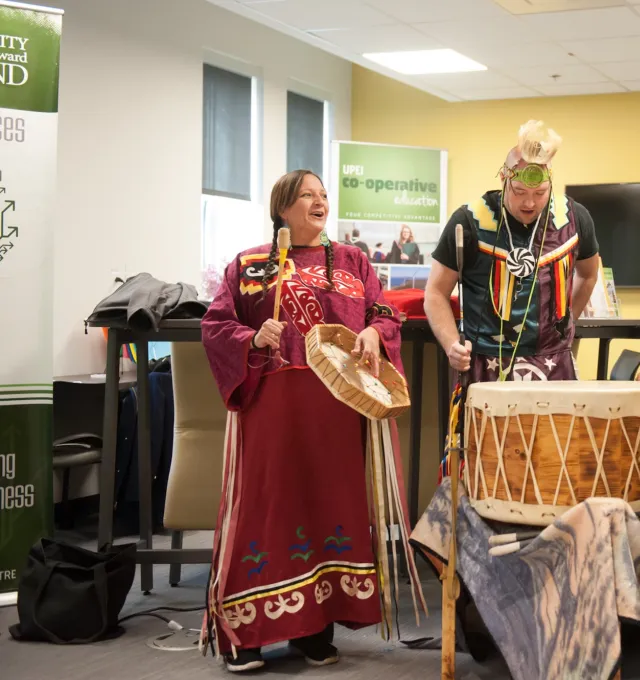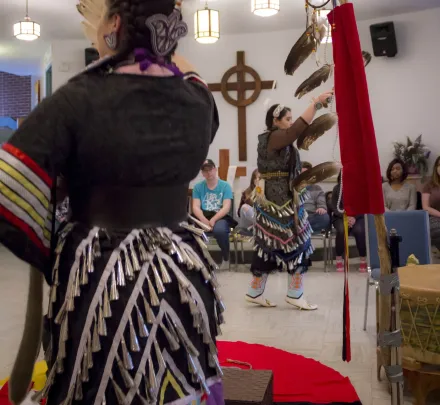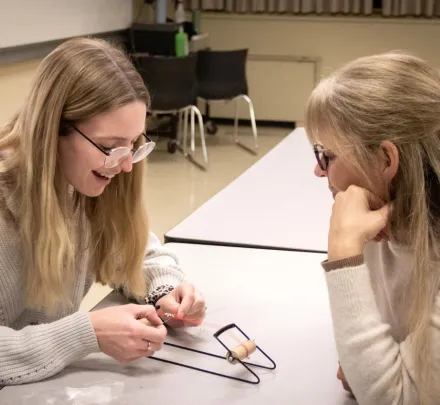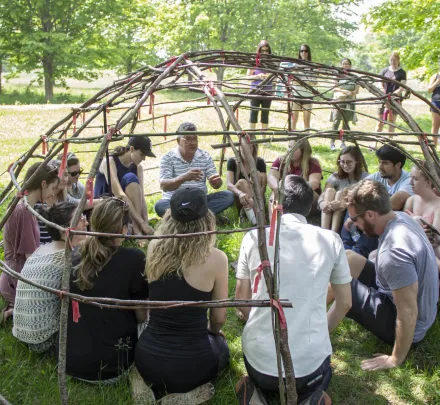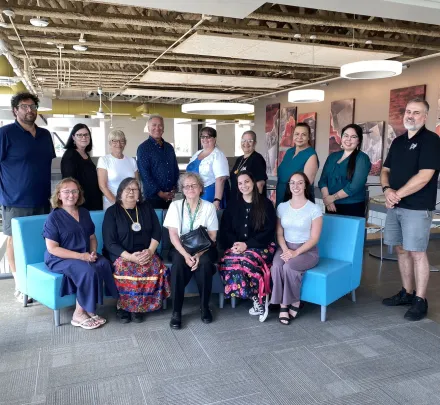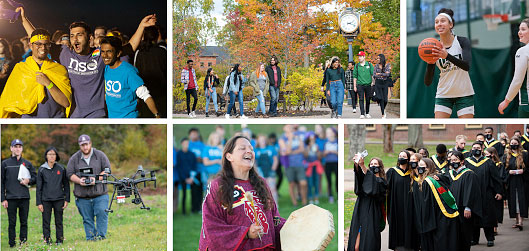Faculty of Indigenous Knowledge, Education, Research, and Applied Studies
UPEI's Faculty of Indigenous Knowledge, Education, Research, and Applied Studies (IKERAS) brings Indigenous knowledge and ways of doing to the forefront of the University, positioning UPEI as the role model for all universities to achieve decolonization and benefit from Indigenous knowledge.
The design of the Faculty will ensure that the University upholds the 2007 United Nations Declaration on the Rights of Indigenous Peoples (UNDRIP), and meets the 2015 Truth and Reconciliation Commission of Canada’s Final Report and 94 Calls to Action, and the 2019 Reclaiming Power and Place: The Final Report of the National Inquiry into Missing and Murdered Indigenous Women and Girls and 231 Calls for Justice.
"Built upon the cornerstone philosophy of seven generations, using traditional and contemporary Indigenous knowledge, we develop generations of successful, respected, influential community members contributing to a better society and world." - IKERAS Vision Statement
Are you ready to apply? It's easy!
- Create a UPEI account
- Complete the UPEI application
- Submit your completed UPEI application and fee
IKERAS Mission Statement Foreword
The following mission statement brings Indigenous Knowledge and Ways of Doing to the forefront of the university and makes UPEI the role model for all universities to achieve decolonization and benefit from Indigenous knowledge. The creation of the Faculty is necessary so that the university can achieve compliance with Article 14 of the UN Declaration on the Rights of Indigenous Peoples. The design of this Faculty will ensure that the university meets the 2019 231 Calls to Justice and the 2015 Truth and Reconciliation Commission (TRC) 94 Calls to Action.
Our mission statement are the values and the action items to support the Faculty's Vision and Mission.
Article 14 of the UN Declaration on the Rights of Indigenous Peoples states:
- Indigenous peoples have the right to establish and control their educational systems and institutions, providing education in their own languages, in a manner appropriate to their cultural methods of teaching and learning.
- Indigenous individuals, particularly children, have the right to all levels and forms of education of the State without discrimination.
- States shall, in conjunction with Indigenous peoples, take effective measures, in order for Indigenous individuals, particularly children, including those living outside their communities, to have access, when possible, to an education in their own culture and provided in their own language.
Elder Judy Clark invited to Government House
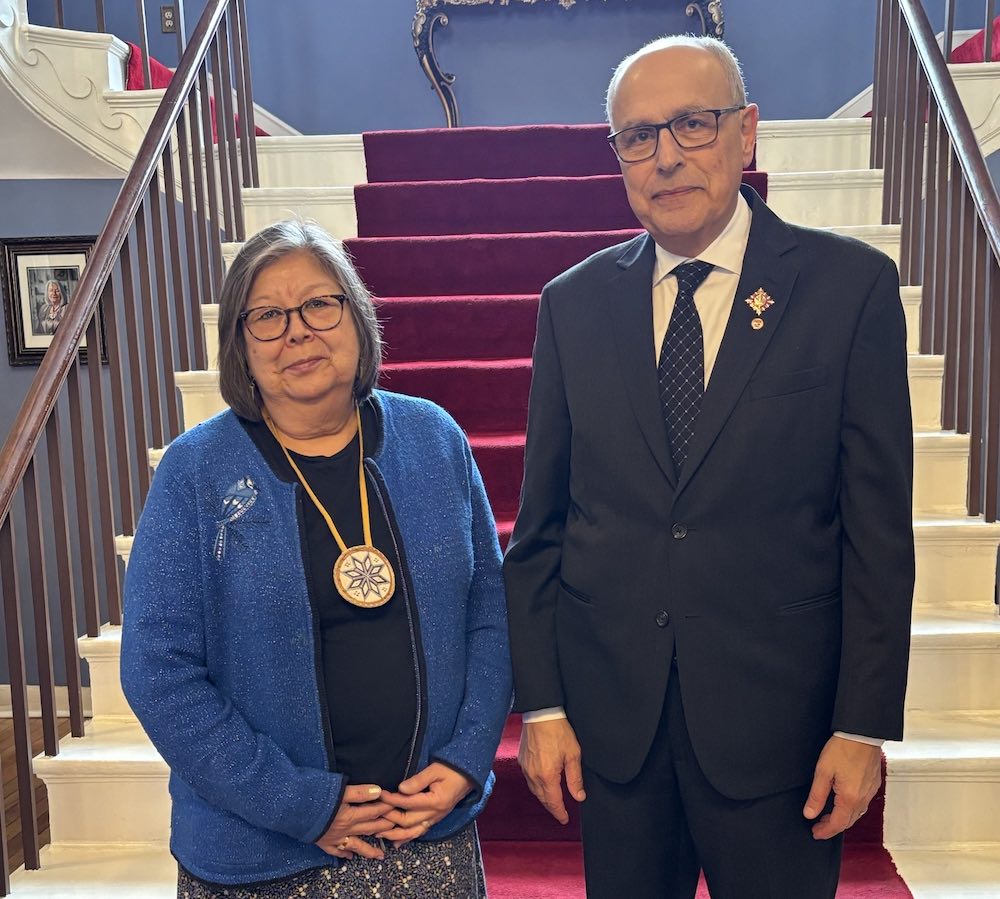
Elder Judy Clark (pictured with PEI Lieutenant Governor the Honourable Dr. Wassim Salamoun) was invited to offer Opening Prayers for two ceremonies at Government House: the swearing-in of PEI's Premier Honourable Rob Lantz and the Executive Council on February 21, 2025; and, the swearing-in of PEI cabinet ministers Darlene Compton and Robin Croucher on February 27, 2025. (photo by Lori St. Onge)
These invitations reflect important recognition and acknowledgement of Mi’kmaq.
IKERAS Mission Statement
To provide all UPEI graduates with the value of Indigenous knowledge systems and history. To give those who specialize in Indigenous Studies the skills necessary to take on critical roles within the community, government, or private sector. The Faculty will provide new integrative models and designs that offer pathways for education, research, engagement, solutions, and collaborations for the 21st century for lasting global sustainability. Lastly, to create and prepare generations of academic scholars and knowledge keepers.
Contact
Faculty of Indigenous Knowledge, Education, Research, and Applied Studies
236 Kelley Memorial Building
902-620-5311
ikeras@upei.ca
For assistance with the Indigenous Student Nnui'sit Bursary, IKE 2010 application, contact ikeras@upei.ca.
IKERAS Values
The importance of Indigenous language to culture
The grandfather seven teachings
The importance of preserving Indigenous worldviews
Research-based Indigenous methodologies and ways of knowing
The critical role of Elders in research, teaching, and creating safe environments
To be role models for students
Focus on student success
Focus on community and global success
The relevance of Indigenous perspectives in teaching and education
The interdisciplinary and multidisciplinary support to all faculties
The link to Indigenous communities
Dedication to each other as scholars and individuals
Consensus decision-making honouring each other
The importance of ceremony in both teaching and research
Learning is relational and life-giving
The importance of respecting all relations, living and non-living
A Luminary Charter Partner
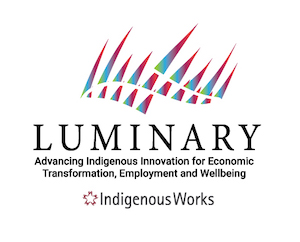 UPEI is one of more than 100 IndigenousWorks' Luminary program Charter Partners, growing increased cooperation and collaboration among Indigenous businesses and communities, university and college researchers, and research agencies.
UPEI is one of more than 100 IndigenousWorks' Luminary program Charter Partners, growing increased cooperation and collaboration among Indigenous businesses and communities, university and college researchers, and research agencies.

